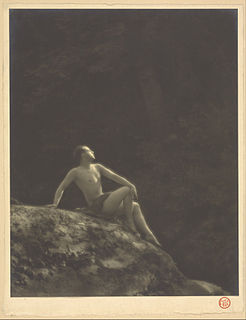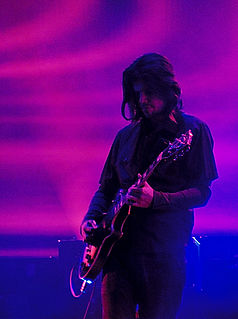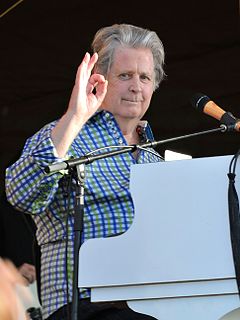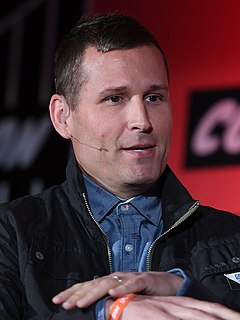A Quote by Flannery O'Connor
I do not like the raw sound of the human voice in unison unless it is under the discipline of music.
Quote Topics
Related Quotes
If you had to call it "unison", it ain't unison. It ain't the same as somebody else. If you can hear that it's unison, and you have to name it something other than "unison", it ain't unison, you know what I mean? It's two guys playin', but one guy is playin' slightly out of tune, one is playin' slightly off meter.
In the past, I've written my songs and then asked friends if they could record the vocals. I didn't want to use my own voice, because other people have much better voices. I was hearing the music with a voice that I don't have. It was a case of pulling whatever resources I had to get the sound I wanted, but that doesn't take anything away from the authorship. They are songs written by me that sound the way I want them to sound. Whether it's my voice or someone else's doesn't make a difference to the music.
I think there's an attitude these days that you can go straight from a studio to the stage, and it isn't really like that. But playing live was the most important thing for me at the start because whenever I recorded something, it didn't sound right; I didn't like how my voice sounded. It was just raw.
There are no words and there is no singing, but the music has a voice. It is an old voice and a deep voice, like the stump of a sweet cigar or a shoe with a hole. It is a voice that has lived and lives, with sorrow and shame, ecstasy and bliss, joy and pain, redemption and damnation. It is a voice with love and without love. I like the voice, and though I can't talk to it, I like the way it talks to me. It says it is all the same, Young Man. Take it and let it be.
Not only does the modern person often think that sight is more important than sound - there's no objective evidence to indicate that. Many people, even audiologists who study the science of human speech and hearing, have assumed for a long time that the human ear evolved to hear the human voice, rather than the voice changing to fit the human ear. And the human ear is actually not a perfect match if we map its sensitivity to the different frequencies in the human range of hearing; it's an unequal curve, it's kind of a wavy line.
I love a great melody and wonderful lyrics that speak from the heart, and my music has that and speaks about it; but there's just something that was really raw and energetic about the early House music. It's hard to describe. It's like you had to go to these parties where the stuff was being played on these huge sound systems to really feel it.






































